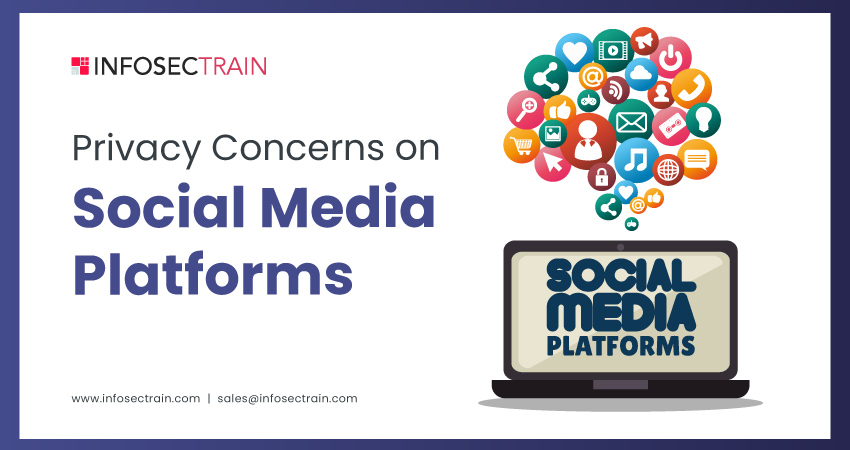Privacy Concerns on Social Media Platforms
The development of social media platforms has completely changed how we interact, communicate, and exchange information. Like a vast digital tapestry, social media platforms connect us to people from all around the globe, enabling us to share our thoughts, experiences, and ideas in real time. Significant privacy risks do, however, come with these advantages. There are concerns regarding privacy protection and the potential exploitation of sensitive information due to the enormous amount of personal data that social media platforms share, gather, and retain.

Common Privacy Issues
1. Data Collection and Sharing Practices:
The extensive gathering and sharing of user data pose one of the significant threats to privacy on social media platforms. Platforms gather enormous amounts of personal data, such as user profiles, posts, likes, shares, and interactions. This information is then utilized to develop detailed user profiles, enabling data analytics, content customization, and targeted advertising. The methods employed for data collection and exchange should be more transparent and regulated, raising concerns.
2. Phishing Attack:
Social networking sites are a popular target for cybercriminals who want to exploit users’ personal information for their gain. On social media, phishing attacks—where users are tricked into disclosing their login credentials or sensitive information—are common. To trick users and obtain unauthorized access to their accounts, cybercriminals may pose as reliable organizations, transmit harmful links, or develop fake login pages.
3. Social Engineering Attacks:
Another vital risk to privacy on social media is social engineering attacks. Cybercriminals utilize psychological deception to persuade users to share personal information or allow access to their accounts. They could pretend to be friends, family members, or even authorities to win trust and obtain private information.
4. Geotagging and Location Tracking:
Numerous social networking networks gather location information, either directly through check-ins or indirectly through geotagging posts and images. While this feature can potentially improve social connections, privacy concerns exist. Location data can identify a user’s home or place of employment, track their travels, learn about their habits and interests, and more. The disclosure of location information raises concerns regarding security and safety. Users who unintentionally share their location can become targets of physical assault, stalking, or crime. Aggregated location data can also be used for monitoring, which affects civil liberties and individual privacy.
5. Cyberbullying, Impersonation, and Harassment:
Social media platforms can also be used for online harassment or stalking. Even non-hackers can commit crimes. They can be obsessed with coworkers and send them threatening messages. The person could post private information about you online, or someone can hack into your account and message your coworkers and friends to harm your reputation. This might be a privacy concern, primarily if the information was transmitted from your account. It could be nearly impossible to explain that you weren’t responsible.
6. Botnet Attacks:
When a specific term is used on social media, automated accounts known as “social media bots” will automatically follow the person or produce a new post. A botnet is a network made up of several different bots. Bots and botnets are shared on social media. They are employed to disseminate spam and steal data.
7. Incorrect Information:
Deception and false information are frequently distributed using social media. Online trolls are a concern since they intentionally start pointless conversations and play with other people’s emotions. So be sure to confirm any information you think might be false on social media, and only publish something after first making sure it’s true.
About InfosecTrain
Data privacy is a continually changing field, necessitating experts in both technology and privacy laws. Continuous learning is necessary to become a data privacy professional, and those who pursue this career path may anticipate being in high demand in the years to come. A job in data privacy offers challenges and rewards because of the increase in data breaches and the significance of protecting sensitive information. A career in data privacy can substantially impact technology and privacy. By providing a thorough understanding of data protection laws, rules, and practices, InfosecTrain’s different training courses in data privacy aid people in becoming professionals in this sector.







 1800-843-7890 (India)
1800-843-7890 (India)